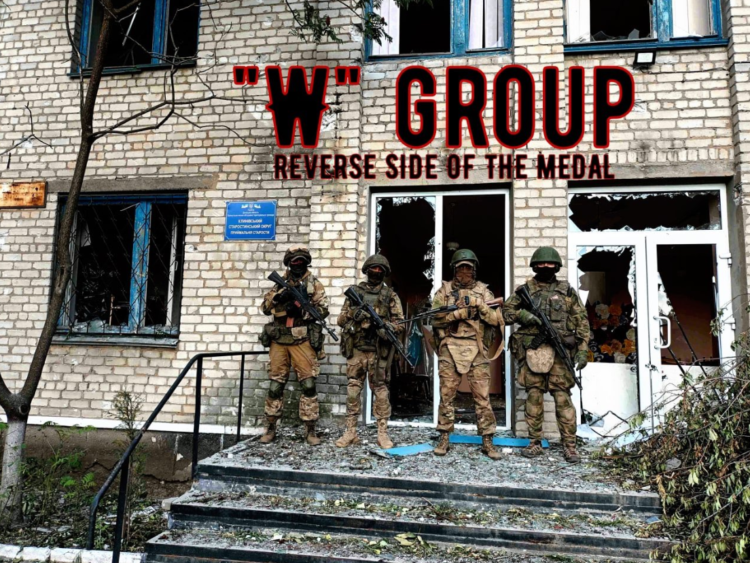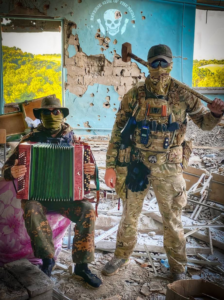In terms of public relations and international image, employing Wagner undermines goodwill towards African leaders. Wagner is almost always too heavy-handed in its operations, leading to systematic abuses against civilians in pursuit of rebels. Worse still, they encourage the local security forces they accompany to do the same. U.N. reports from the Central African Republic found that Wagner and the Central African Armed Forces (FACA) were responsible for nearly half of all confirmed instances of abuse.
Wagner and Russia use the international isolation of their host states to increase their influence. The President of the Central African Republic has a Russian national security advisor, mandated teaching Russian in schools, and now seeks to make Russian an official language, along with a raft of changes allowing him to run for a third term. More importantly, CAR appears no closer to peace as fighting continues, and Wagner-led FACA forces create more grievances for people in central and eastern CAR than they solve. Wagner’s ability to personally protect the President means that his fortunes can rise even if his country falls. Russia supported anti-French protests and fund some civil society figures, accompanied by legitimate anger at France for its decades of paternalistic policies in Africa, ensure that there will be some level of support in Capital cities independent of the performance of presidents and juntas as heads of state.
Wagner in Mali, The Newest Mission
Mali, Wagner’s newest mission in Africa, follows the same playbook as the Central African Republic. Mali’s years-long conflict against rebels and Al-Qaeda and ISIS-affiliated extremist groups led to French intervention, an E.U. training mission and task force, and one of the U.N.’s largest current peacekeeping missions. After a series of coups in 2020 and 2021, the governing junta decided to close the airspace over Mali and expel the French mission. In September 2021, press reports revealed that the committee was negotiating with Russia to send Wagner forces to help fight extremists.
Wagner and Russia played on the Malian government’s dissatisfaction with France’s inability to restore order and the post-coup junta’s poor relationship with the international community to push anti-French propaganda and promise results in exchange for monthly payments and access to resources in the Southwest of the country. Like CAR, the mission has grown in scope, pushed the junta away from its traditional security partners, and now wields significant influence.
Rusich – an ultranationalist neo-nazi unit tied to the Wagner Group – published a recruitment video comparing a helmet they claim to supply their contractors with to the Russian standard-issue 6B27 helmet
The featured helmet resembles the Ops-Core FAST helmets used by US SOF pic.twitter.com/XIm6Ab9x5D
— ʘPSEC? (@GuinieZoo_Intel) July 5, 2022
Wagner has already engaged in severe human rights abuses in Mali. U.N. reports note a 300% increase in civilian deaths compared to prior years, a disproportionate number committed by security forces. The numbers are likely higher since Wagner, and the Malian government refuses to cooperate with U.N. investigations. The prime example is the town of Moura, where the Wagner and the Malian Armed Forces (FAMA) likely killed 300-600 people while “liberating” it from extremists. According to eyewitness accounts, Wagner and FAMA detained, interrogated, and executed most men in the town, regardless of affiliation with extremists. Malian authorities refused to allow the U.N. to investigate with support from Russia in the U.N. Security Council. They even detained investigators when they approached the town.
The E.U.’s Plan to Counter Wagner
Several countries are looking for ways to contain and degrade Wagner’s operations in Africa. The U.S. Department of Treasury and its European counterparts have Prighozhin and other associates under sanctions. In addition, Wagner will likely feature prominently in the Countering Malign Russian Activities Act, which passed the House of Representatives and awaits approval. The U.K. Foreign Affairs Committee has also launched an investigation into Russian mercenaries.
While most anti-Wagner efforts are nascent at the national level, a recently leaked E.U. report from the European External Action Service (EEAS) proposes taking ambitious steps to contain Russian mercenaries. According to the EEAS, Wagner’s activities in Mali forced the E.U. to suspend its training mission, leading to the erosion of democratic principles and worse humanitarian outcomes. The EEAS wants to launch three missions in West Africa and the Gulf of Guinea that go beyond the typical E.U. training mission. These missions would be trained, equipped, accompanied, and virtually guaranteed that E.U. soldiers would enter combat.
Putin seizing yet another country with oilfields. Haftar, courtesy of Wagner Group, has the hard power.
So much “easier” than Syria and no NATO, American troops or White Helmets to be seen. #PutinsWar #RussiaInTheWorld https://t.co/QrgZT0KWpI
— V (@Vmaxpax) July 2, 2022
Without overwhelming support from its member states, the E.U.’s plan is dead on arrival. Brussels is betting that improving its reliability as a security partner and making some efforts to counter Russian disinformation will prevent other West African nations, particularly Burkina Faso and Niger, who face the same security environment as Mali and are reportedly next on the Wagner hit list. However, the obstacles to implementing the plan are likely insurmountable for the E.U. in the near term.
For all the talk of launching a broad effort across West Africa, doing so actually requires the countries in West Africa to be on board. Niger and Burkina Faso requested E.U. support, but only for logistical support. While they may be interested in an E.U. training, equipping, and accompanying the mission, overstepping their request dramatically might undermine public confidence in their governance and appear to have less sovereignty over their affairs.
It is also unclear if there is sufficient appetite for the E.U. member states to contribute troops for three additional missions with a more aggressive mandate. In terms of deployments, smaller countries might be squeamish about large implementations. The E.U. might be worried that deploying former colonial powers like France would make the missions susceptible to the same kind of Russian propaganda they seek to counter. Most democracies are casualty-averse, meaning that any significant reversal could compromise participation. Lastly, with Europe’s newfound concern for Russia comes a desire to keep within their borders or contribute to NATO’s frontier with Russia.
It’s always possible that the E.U. and other efforts contain the group, but generally, Wagner is defeated by its host government. For example, the Mozambican government ended Wagner’s mission following its poor performance, not an E.U. mission in a neighboring country. Moreover, detaching Wagner will be tough without sustained diplomatic and political pressure for those increasingly relying on Wagner to prop up the regime and personalize control over the state, such as CAR and Mali.
This is a user-submitted piece by Marcel Plichta. Marcel Plichta is a Ph.D. Candidate in International Relations at the University of St Andrews and a former intelligence analyst for the U.S. Department of Defense. He has written on African security issues for Newsweek, Defense One, and World Politics Review. All views are his own.











COMMENTS